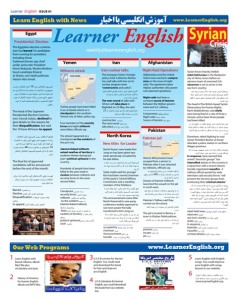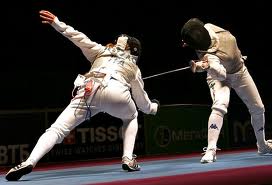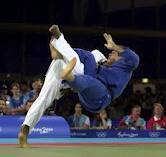|
Olympic Games
|
بازی ها المپیک
|
||||||||||||||||||||||||||||||||||||||||||||||||||||||||||
|
تیراندازی با کمان
|
|||||||||||||||||||||||||||||||||||||||||||||||||||||||||||
|
Athletics
|
دو و ميدانى
|
||||||||||||||||||||||||||||||||||||||||||||||||||||||||||
|
بدمينتن
|
|||||||||||||||||||||||||||||||||||||||||||||||||||||||||||
|
بسكتبال
|
|||||||||||||||||||||||||||||||||||||||||||||||||||||||||||
|
بسكتبال ساحلی
|
|||||||||||||||||||||||||||||||||||||||||||||||||||||||||||
|
بوکس
|
|||||||||||||||||||||||||||||||||||||||||||||||||||||||||||
|
دوچرخه سواری
|
|||||||||||||||||||||||||||||||||||||||||||||||||||||||||||
|
Diving
|
شیرجه
|
||||||||||||||||||||||||||||||||||||||||||||||||||||||||||
|
Equestrian
|
اسب سوارى
|
||||||||||||||||||||||||||||||||||||||||||||||||||||||||||
|
Fencing
|
شمشیربازی
|
||||||||||||||||||||||||||||||||||||||||||||||||||||||||||
|
Football
|
فوتبال
|
||||||||||||||||||||||||||||||||||||||||||||||||||||||||||
|
Gymnastics – Rhythmic
|
ژیمناستیک موزون
|
||||||||||||||||||||||||||||||||||||||||||||||||||||||||||
|
Handball
|
هندبال
|
||||||||||||||||||||||||||||||||||||||||||||||||||||||||||
|
Hockey
|
هاکی
|
||||||||||||||||||||||||||||||||||||||||||||||||||||||||||
|
Judo
|
جودو
|
||||||||||||||||||||||||||||||||||||||||||||||||||||||||||
|
Modern Pentathlon
|
پنجگانه مدرن
|
||||||||||||||||||||||||||||||||||||||||||||||||||||||||||
|
Rowing
|
قایقرانی
|
||||||||||||||||||||||||||||||||||||||||||||||||||||||||||
|
Sailing
|
قایقرانی با قایق بادبانی
|
||||||||||||||||||||||||||||||||||||||||||||||||||||||||||
|
Shooting
|
تیراندازی با تفنگ
|
||||||||||||||||||||||||||||||||||||||||||||||||||||||||||
|
Swimming
|
شنا
|
||||||||||||||||||||||||||||||||||||||||||||||||||||||||||
|
SynchronizedSwimming
|
شنای موزون
|
||||||||||||||||||||||||||||||||||||||||||||||||||||||||||
|
Table Tennis
|
تنیس روی میز
|
||||||||||||||||||||||||||||||||||||||||||||||||||||||||||
|
Taekwondo
|
تکواندو
|
||||||||||||||||||||||||||||||||||||||||||||||||||||||||||
|
Tennis
|
تنيس
|
||||||||||||||||||||||||||||||||||||||||||||||||||||||||||
|
Triathlon
|
سه گانه
|
||||||||||||||||||||||||||||||||||||||||||||||||||||||||||
|
Volleyball
|
واليبال
|
||||||||||||||||||||||||||||||||||||||||||||||||||||||||||
|
Water Polo
|
واترپولو
|
||||||||||||||||||||||||||||||||||||||||||||||||||||||||||
|
Weightlifting
|
وزنهبرداری
|
||||||||||||||||||||||||||||||||||||||||||||||||||||||||||
|
Wrestling
|
کشتی
|
دستۀ feature
‹Buffalo Bill› Cody, 1846-1917: He Represented the Spirit and Tradition of the American West
This lesson is about a man called “Buffalo Bill” who created shows that people around the world enjoyed for more than thirty years.
|
|
GWEN OUTEN: I’m Gwen Outen.
DOUG JOHNSON: And I’m Doug Johnson with PEOPLE IN AMERICA in VOA Special English. Today, we tell the story of a man called “Buffalo Bill.” His real name was William F. Cody. He created “Wild West” shows that people around the world enjoyed for more than thirty years.
(MUSIC)
GWEN OUTEN: William Frederick Cody was born in eighteen-forty-six in the state of Iowa. He died in Colorado in nineteen-seventeen. Researchers disagree about other incidents in his life. That is because some stories about “Buffalo Bill” are a combination of factual events and make-believe. However, there is general agreement about the influence of “Buffalo Bill” Cody. People say he represented the spirit and tradition of the American West.
DOUG JOHNSON: William F. Cody grew up in the center of the United States. William’s family moved from Iowa to the territoryof Kansas when he was still a child. His father died in eighteen-fifty-seven. A short time later, William started working at different jobs to help his family. He worked as a driver for a team of oxen. He guided the powerful animals as they moved goods from place to place. He also carried messages for a local company.
Later, William joined a group of men seeking gold in the mountains of Colorado. They were not very successful. Then he got a job as a Pony Expressrider. The Pony Express used teams of men and horses to transport mail across the country. William was a skilled rider. Once he rode five-hundred-fifteen kilometers in a single trip. This was one of the longest rides for the Pony Express. At the time, he was just fifteen years old.
(MUSIC)
GWEN OUTEN: Kansas became a state in eighteen-sixty-one. A few weeks later, the Civil War between the states started. Southern states fought to protect the rights of individual states. Northern states fought to keep the country united. During the war, Kansas joined with the North and provided men for the Union army.
William was too young to fight when the Civil War started. At first, he served the Union forces as a scout, or explorer.
In eighteen-sixty-four, he joined the United States Army. Cody became a member of the Seventh Kansas Cavalry. His force was sent to nearby southern states during the Civil War. Cody drove a team of horses. He remained there until the war ended.
DOUG JOHNSON: After the war, William Cody married Louisa Frederici in Saint Louis, Missouri. They were married for more than fifty years and had four children. When they were first married, Cody had many different jobs. For example, he operated a hotel in Kansas. Then he began hunting buffalo for work crews building the Kansas Pacific Railroad. The workers used the wild animals for meat.
Cody got the name “Buffalo Bill” by winning a buffalo hunting competition. Reports say he shot and killed more than four-thousand buffalo in just eighteen months.
(MUSIC)
GWEN OUTEN: Cody re-joined the Army in eighteen-sixty-eight. He served as a civilian scout for military forces fighting Indians in the West. His experience and skills made him an able fighter and guide for the Army.
Cody helped the Fifth Cavalry defeat a group of Cheyenne warriors. He also served as a guide for individuals who wanted to hunt buffalo. Some hunters came from big cities in the eastern United States and from other countries. Once he guided a member of Russia’s ruling family, the Grand Duke Alexis, on a hunting trip. American newspapers reported on their activities.
DOUG JOHNSON: Cody’s exciting life provided the details for many stories. A number of writers began producing stories about famous people of the western United States. These stories became known as dime novels. Dime novels helped make heroes of people like Davy Crockett and Kit Carson.
A writer named Ned Buntline decided to write a book about Buffalo Bill. Buntline’s book and newspaper reports helped make Cody famous. The book became popular and was later made into a play called “Scouts of the Prairie.” Buffalo Bill even appeared in the show. Critics said Cody was a bad actor, but the show was very successful.
The play led Cody to form his own traveling show. The group included another hero of the American West, Wild Bill Hickok.
GWEN OUTEN: During this period, Cody often returned to the West to find other work. He assisted the Army in its operations against Indian tribes. In eighteen-seventy-six, Indian warriors defeated General George Custer and his forces in the Battle of Little Big Horn in Montana.
A few weeks later, Cody and other soldiers clashed with a group of Cheyenne Indians. During the fighting, Cody reportedly killed a Cheyenne warrior named Yellow Hair. This event added yet another incident to Buffalo Bill’s collection of stories.
Cody liked the idea of being a showman and telling people about the American West. In eighteen-seventy-nine, he wrote his own life story and began publishing his own dime novels. He also continued to produce plays.
(MUSIC)
DOUG JOHNSON: Cody organized his first Wild West show in eighteen-eighty-two in the state of Nebraska. The show was performed outside. It was designed to entertain and educate crowds of people. There were cowboys, Indians, buffalo and other kinds of animals. People were not sure exactly what the show was, but they liked it.
The following year, Cody and his business partners formed a traveling show called “Buffalo Bill’s Wild West.” It brought cowboys and Indians to people in parts of the United States who might never have seen them. The show was a major success for the next thirty years. People liked it for many reasons. One was a desire to return to earlier, simpler times. The American West of the dime novels was fast disappearing. The area was starting to develop.
GWEN OUTEN: “Buffalo Bill’s Wild West” show included cowboys hunting buffalo. It had riders for the Pony Express. It re-created an Indian attack on a carriage transporting goods. The show also re-created the attack against General Custer and his forces. It included Indians who were involved in the real attack. It also included the famous Sioux chief Sitting Bull, who had killed General Custer. Sitting Bull traveled with Buffalo Bill’s Wild West show for several months.
In later years, a cowgirl named Annie Oakley performed with the show. She was one of the best gun shooters in the country. Annie Oakley could ride a horse standing up while shooting at a target. She could shoot a piece of money out of someone’s hand. Once, she became famous for shooting a cigarette held in the mouth of German Crown Prince Wilhelm.
“Buffalo Bill’s Wild West” performed in cities and towns across the United States and in Europe. In eighteen-eighty-seven, the show performed in England in honor of Queen Victoria’s fiftieth anniversary in power. Six years later, the show was popular at the World’s Fair in Chicago, Illinois.
DOUG JOHNSON: Buffalo Bill Cody was said to be the most famous American in the world by the beginning of the twentieth century. American presidents met with him to discuss issues important to the West. He had many modern ideas. For example, he supported fair treatment for American Indians. And he supported equal pay and equal voting rights for women. He was also a businessman who looked toward the future. He invested in projects that he hoped would bring economic growth to the West.
Cody made a lot of money from his show business success. However, he lost his wealth because of bad investments and failure to watch how the money was used.
In nineteen-oh-eight, “Buffalo Bill’s Wild West” combined with another traveling show. But this show failed. A short time later, Cody got a loan from a Colorado company to keep his show operating. But his financial situation got worse over the next few years.
GWEN OUTEN: Buffalo Bill Cody died in nineteen-seventeen while visiting his sister in Denver, Colorado. He was buried near the city, at the top of Lookout Mountain. His funeral was a major event. Twenty-thousand people traveled there to attend the ceremony.
Today, thousands of people visit Lookout Mountain every year. They see Cody’s burial place and a museum built in his honor. And, they hear stories about people who experienced the excitement of Buffalo Bill’s Wild West show.
(MUSIC)
DOUG JOHNSON: This program was written by George Grow. Lawan Davis was our producer. I’m Doug Johnson.
GWEN OUTEN: And I’m Gwen Outen. Join us again next week for PEOPLE IN AMERICA in VOA Special English.
American History: World War II on the Home Front
 STEVE EMBER: Welcome to THE MAKING OF A NATION – American history in VOA Special English. I’m Steve Ember
STEVE EMBER: Welcome to THE MAKING OF A NATION – American history in VOA Special English. I’m Steve Ember
(MUSIC)
The United States entered the Second World War in December of forty-one. Europe had already been at warsince nineteen thirty-nine. But the United States did not enter World War Two until Japanese forces attacked the American naval base at Pearl Harbor, Hawaii.
(SOUND)
The attack was a surprise. But American military and political leaders had believed that the United States, sooner or later, would be pulled into the fighting. And they began to prepare for war.
(MUSIC)
President Franklin Roosevelt had been assistant secretary of the Navy under President Woodrow Wilson during World War One. He remembered how American troops were not ready for that war. Now that he was president, Roosevelt wanted to be sure that the United States would be ready when it had to fight. Throughout nineteen forty-one, Roosevelt urged American industries to produce more weapons and other military supplies. He established new government agencies to work with industry to increase arms production.
Some business leaders resistedRoosevelt’s efforts. They felt there was no need to produce more arms while the United States was still at peace. But many others cooperated. And by the time Japan attacked Pearl Harbor, the American economy was producing millions of guns and other weapons.
Still, this was not enough to fight a war. After the Japanese attack, Roosevelt increased his demands on American industry. He called for sixty thousand warplanes, forty-five thousand tanks and twenty-thousand anti-aircraft guns. And he wanted all these within one year.
A month after the Pearl Harbor raid, Roosevelt organized a special committee to direct military production. He created another group to help companies find men and women for defense work. And he established a new office where the nation’s best scientists and engineers could work together to design new weapons.
These new government organizations faced several problems. Sometimes factories produced too much of one product and not enough of another. Sometimes tools broke. And some business owners refused to accept government orders.
But the weapons were produced, and American troops soon had the guns and supplies they needed.
(MUSIC)
The federal government had to quickly expand its own workforce to meet war needs. Federal spending increased from six billion dollars in nineteen forty to eighty-nine billion in nineteen forty-four. That was fifteen times as much spending in just five years.
Roosevelt had to take strong steps to get the money for all this spending. He put limits on wages. He increased income taxes to as much as ninety-four percent on portions of incomes over two hundred thousand dollars. And he asked the American people to lend money to the federal government. The people answered by purchasing almost one hundred billion dollars in war bonds.
The great increase in public spending raised the threat of high inflation. Roosevelt created a special office with the power to control prices. Many Americans agreed with the idea of price controls. But every business wanted somebody else’s prices controlled, not their own.
Federal officials had to work hard to keep prices and supplies under control. They restricted how much meat, fuel and other goods people could buy.
The price control program generally worked. Its success kept the American economy strong to support the troops fighting in Europe and Asia.
One reason these strong economic steps worked was because most of the American people fully supported the war effort.
(MUSIC)
You can look at photographs of people from those times and see in their faces how strongly they felt.
In one picture from the state of North Carolina, a group of men are standing in front of old rubber tires. They are planning to give the tires to the Army to be fixed and used for military vehicles.
Another photo shows a woman visiting a hospital. She is singing to a soldier to lift his spirits.
Still another photo shows a man who owns a small food store. He is placing signs on meat and cans of food to tell people how much they are allowed to buy.
You can also get an idea about the feelings of the times by the names of some of the popular songs during World War Two.
(MUSIC)
STEVE EMBER: In addition to “Rosie the Riveter,” there were songs like “Praise the Lord and Pass the Ammunition.» One of the most hopeful songs was this one, recorded by Britain’s Vera Lynn.
(MUSIC: «When the Lights Go on Again All Over the World»)
Not all Americans supported the war. A small number refused to fight because of religious or moral beliefs. They were known as conscientiousobjectors. And some Americans supported Adolf Hitler and other fascists. But almost everyone else wanted to win the war quickly and return to a normal life.
(MUSIC)
Many Japanese-Americans served with honor in the United States armed forces. But many Americans were suspicious of anyone whose family had come from Japan. They refused to trust even Japanese-American families who had lived in the United States for more than a century.
Many banks refused to lend money to Japanese-Americans. Many stores would not sell to them.
The federal government relocated thousands of Japanese-Americans in Californiaand other states into internment camps. They were released only after the war ended. It was many years before the government officially apologized for mistreating Japanese-Americans.
(MUSIC)
But World War Two did lead to progress for another group that was often the target of discrimination: black Americans. Black leaders spoke out. They said it was unfair to fight a war for freedom in Europe while black Americans did not have all the same freedoms as white citizens.
A. PHILIP RANDOLPH: “Negros want the same things that white citizens possess – all their rights, and no force under the sun can stem and block and stop this civil rights revolution which is now underway.”
STEVE EMBER: In nineteen forty-one, a leader in the black community, A. Philip Randolph, threatened to lead a giant march on Washington for civil rights for blacks. President Roosevelt reacted by issuing an order that made it a crime to deny blacks a chance for jobs in defense industries. He also ordered the armed forces to change some of their rules that discriminatedagainst black service members.
Blacks made progress in the military and defense industries. But most other industries still refused to give them an equal chance. Major progress on civil rights would not come until the nineteen fifties and sixties.
(MUSIC)
Life was busy during the war years. There were many changes in the economy, business, music, race relations and other areas. But in many ways, life continued as it always does.
Americans did what they could during the hard years of World War Two to keep life on the home front as normal as possible. But almost everyone understood that the first job was to support the troops overseas and win the war.
This strength of purpose at home gave American soldiers the support they needed. And it also helped President Roosevelt as he negotiated with other world leaders. Diplomacy and foreign relations became much more complex during the war. That will be our story next week.
Our program was written by David Jarmul. You can find our series online with transcripts, MP3s, podcasts and pictures at voaspecialenglish.com. You can also follow us on Facebook and Twitter at VOA Learning English. I’m Steve Ember, inviting you to join us again next week for THE MAKING OF A NATION — American history in VOA Special English.
(MUSIC)
The United States entered the Second World War in December of forty-one. Europe had already been at war since nineteen thirty-nine. But the United States did not enter World War Two until Japanese forces attacked the American ——– base at Pearl Harbor, Hawaii.
(SOUND)
The attack was a surprise. But American military and ————– leaders had believed that the United States, sooner or later, would be pulled into the fighting. And they began to prepare for war.
(MUSIC)
President Franklin Roosevelt had been assistant secretary of the Navy under President Woodrow Wilson during World War One. He remembered how American ——– were not ready for that war. Now that he was ————, Roosevelt wanted to be sure that the United States would be ready when it had to fight. Throughout nineteen forty-one, Roosevelt urged American industries to produce more weapons and other military supplies. He established new ———— agencies to work with industry to increase arms production.
Some business leaders resisted Roosevelt’s efforts. They felt there was no need to ———– more arms while the United States was still at peace. But many others cooperated. And by the time Japan attacked Pearl Harbor, the American economy was ————- millions of guns and other weapons.
Still, this was not enough to fight a war. After the Japanese attack, Roosevelt increased his demands on American ———–. He called for sixty thousand warplanes, forty-five thousand tanks and twenty-thousand anti-aircraft guns. And he wanted all these within one year.
A month after the Pearl Harbor raid, Roosevelt organized a special —————- to direct military production. He created another group to help companies find men and women for defense work. And he ————— a new office where the nation’s best scientists and engineers could work together to design new ————.
These new government organizations faced several problems. Sometimes ————- produced too much of one product and not enough of another. Sometimes tools broke. And some business owners ————– to accept government orders.
But the weapons were produced, and American troops soon had the guns and ————— they needed.
(MUSIC)
The federal government had to quickly expand its own ————- to meet war needs. Federal spending increased from six billion dollars in nineteen forty to eighty-nine billion in nineteen forty-four. That was fifteen times as much ——————– in just five years.
Roosevelt had to take strong steps to get the money for all this spending. He put limits on wages. He ————— income taxes to as much as ninety-four percent on portions of incomes over two hundred thousand dollars. And he asked the American people to lend money to the federal government. The people answered by ——————– almost one hundred billion dollars in war bonds.
The great increase in public spending raised the threat of high inflation. Roosevelt created a special office with the ————– to control prices. Many Americans agreed with the idea of price controls. But every business wanted somebody else’s prices ——————–, not their own.
Federal officials had to work hard to keep prices and supplies under control. They ———————- how much meat, fuel and other goods people could buy.
The price control program generally worked. Its success kept the American ——————– strong to support the troops fighting in Europe and Asia.
One reason these strong —————– steps worked was because most of the American people fully supported the war effort.
(MUSIC)
You can look at ———————— of people from those times and see in their faces how strongly they felt.
In one picture from the state of North Carolina, a group of men are —————- in front of old rubber tires. They are planning to give the tires to the Army to be fixed and used for military vehicles.
Another photo shows a woman visiting a ———————. She is singing to a soldier to lift his spirits.
Still another photo shows a man who owns a small food store. He is placing —————- on meat and cans of food to tell people how much they are allowed to buy.
You can also get an idea about the feelings of the times by the names of some of the ————— songs during World War Two.
(MUSIC)
STEVE EMBER: In addition to “Rosie the Riveter,” there were songs like “Praise the Lord and Pass the Ammunition.» One of the most —————— songs was this one, recorded by Britain’s Vera Lynn.
(MUSIC: «When the Lights Go on Again All Over the World»)
Not all Americans supported the war. A small number —————– to fight because of religious or moral beliefs. They were known as ————————- objectors. And some Americans supported Adolf Hitler and other fascists. But almost everyone else wanted to win the war quickly and return to a normal life.
(MUSIC)
Many Japanese-Americans served with honor in the United States armed forces. But many Americans were ——————- of anyone whose family had come from Japan. They refused to trust even Japanese-American families who had lived in the United States for more than a century.
Many banks refused to lend money to Japanese-Americans. Many stores would not sell to them.
The federal government relocated thousands of Japanese-Americans in California and other states into ——————– camps. They were released only after the war ended. It was many years before the government officially apologized for mistreating Japanese-Americans.
(MUSIC)
But World War Two did lead to progress for another group that was often the target of —————————: black Americans. Black leaders spoke out. They said it was unfair to fight a war for freedom in Europe while black Americans did not have all the same ——————— as white citizens.
A. PHILIP RANDOLPH: “Negros want the same things that white citizens possess – all their rights, and no force under the sun can stem and block and stop this civil rights ——————- which is now underway.”
STEVE EMBER: In nineteen forty-one, a leader in the black community, A. Philip Randolph, threatened to lead a giant march on Washington for ————————– for blacks. President Roosevelt reacted by issuing an order that made it a crime to deny blacks a chance for jobs in defense industries. He also ordered the armed forces to change some of their rules that discriminated against black service members.
Blacks made progress in the ——————— and defense industries. But most other industries still refused to give them an equal chance. Major progress on civil rights would not come until the nineteen fifties and sixties.
(MUSIC)
Life was busy during the war years. There were many changes in the economy, business, music, race relations and other areas. But in many ways, life —————— as it always does.
Americans did what they could during the hard years of World War Two to keep life on the home front as normal as possible. But almost everyone ———————- that the first job was to support the troops overseas and win the war.
This strength of purpose at home gave American soldiers the support they needed. And it also helped President Roosevelt as he ——————– with other world leaders. Diplomacy and foreign relations became much more complex during the war. That will be our story next week.
Our program was written by David Jarmul. You can find our series online with transcripts, MP3s, podcasts and pictures at voaspecialenglish.com. You can also follow us on Facebook and Twitter at VOA Learning English. I’m Steve Ember, inviting you to join us again next week for THE MAKING OF A NATION — American history in VOA Special English.
New Apps Dictionaries
1- Word Book: Electronic Book + Software
2- Learner English Dictionary: Electronic Books + Software
This dictionary is base on:
WordBook – English to English & English to Farsi – coming soon…
How to Improve your English Language?
 بازدید کننده سایت (www.learnerenglish.org) سوالی کرده که جواب سوال را با همه در میان میگذاریم.
بازدید کننده سایت (www.learnerenglish.org) سوالی کرده که جواب سوال را با همه در میان میگذاریم.1- اخبار و وقایعی که در روز شاهد آن هستید به انگلیسی بنویسید.
2- بعضی وب سایت ها نکاتی آموزش زبان دارند از مطالب آنها استفاده کنید.
3- به رادیو ها انگلیسی زبان گوش فرادهید و همزمان کارها روزمره تان رو هم انجام دهید.
4- به آهنگ های انگلیسی گوش کنید و تلفظ خود را قویه کنید.
5- شعر آهنگ ها را از داخل انترنت جستجو کنید و شعر را یاد بگیرد و بعد به اهنگ آن شعر گوش فرادهید.
6- اگه کتابی را مطالعه کردید یا فیلمی را تماشا نمودید و یا به هوتلی رفتید، نظر تان را در رابطه آن به انگلیسی بنویسید.
7- در انترنت فقط به زبان انگلیسی جستجو کنید.
8- اگر کتابی به زبان فارسی خواندید و یا فیلمی به زبان فارسی تماشا کردید نسخه اصلی آن که به زبان انگلیسی است نیز بخوانید و تماشا کنید.
9- کتاب های که از زبان فارسی به زبان انگلیسی ترجمه شده متن آسان تری دارند و بیشتر درک می کنید و به تقویه زبان شما کمک می کند.
10- کتاب های کمدی که به زبان انگلیسی نوشته شده را مطالعه کنید. هم تفریح است و به تقویه زبان کمک می کند.
11- مجله ها انگلیسی زبان را مطالعه کنید..
12- هر وقت کتاب و فیلم و مجله ها را به زبان انگلیسی مطالعه کردید کوشش کنید به یک کلاس مکالمه شرکت کنید و از فرصت نهایت استفاده را ببرید و بدون توقف انچه را مطالعه کردید به زبان بیاورید.
13- کوشش کنید که به اطرافیان تان انگلیسی تدریس کنید. راز یادگرفتن تدریس کردن است.
14- اگر به موسسه یا شرکتی کار می کنید از رئیس دفتر بخواهید که کلاس زبان برای شما مهیا کنند. اکثر شرکت ها و موسسات مایلند که کارمندانشان به زبان مهارت داشته باشند.
15- اگه در کامپیوتر گیم بازی می کنید کوشش کنید که گیم ها زبان انگلیسی را بازی کنید.
16 – آنچه را که در طول روز انجام می دهید به انگلیسی فکر کنید و به انگلیسی برای خود تشریح کنید.
17- فیلیم های انگلیسی که زیرنویس دارند را آماده کنید و تماشا کنید.
18- فیلم زبان فارسی را که زیرنویس انگلیسی دارد تماشا کنید.
19- فیلم های انگلیسی زبانی که زیرنویس فارسی دارند تماشا کنید.
20- یک فیلم انگلیسی را بار ها بارها تماشا کنید هر دفعه مطالب زیادتری می آموزید
21 – به خود باور داشته باشید و نگوئید که مشکل است نمی توانم ادامه بدم
22- کارتن ها و برنامه ها کودک که به زبان انگلیسی است تماشا کنید. خیلی آسان و دلچسب هستند.
23- کتابها کودکان که زبان انگلیسی است مطالعه کنید.
24- همیشه یک لیست از لغات را با خود داشته باشید و هر موقع بیکار بودید مطالعه نمائید.
25- کوشش کنید از وسایلی که روزانه استفاده میکنید اسمهای آنها را به زبان انگلیسی یاد بگیرید.
26- همیشه به یک کتاب نچسپید که خسته کن می شود یک چیزی نوع همیشه آماده بسازید.
27- اگر از انترنت استفاده می کنید به چت روم ها شرکت کنید و به انگلیسی چت کنید.
28 – یک شعر یا سخنرانی مشهور انگلیسی را حفظ کنید که به جمله بندی شما خیلی کمک می کند.
29 –موقعیکه فیلم تماشا می کنید یا اخبار می خوانید یک دیکشنری با خود داشته باشید.
30 – به انگلیسی حرف بزنید و صدا خود را با گوشی مبایل تان ثبت کنید. گوش دادن به صدای خود خیلی لذت بخش است.
31- کوشش کنید که لغات به شکل دسته بندی شده یاد بگیرید. مثلا لغات مربوط به اسامی حیوانات.
32- یک دوستی که به زبان انگلیسی مسلط است پیدا کنید و با او به انگلیسی حرف بزنید.
33 – همیشه کوشش کنید که صدای یک نفر انگلیسی زبان را دنبال کنید و از لهجه او تقلید کنید. به این طریق زود پیشرفت می کنید.
34 – به دوستانی که انگلیسی را یاد دارند اس ام اس یا ایملی به انگلیسی بفرستید.
35 – فعلا به بازار دیکشنری ها برقی گویا هست یکی را برای خود بخرید.
36 – مینوی گوشی مبایل خود را به زبان انگلیسی استفاده کنید.
37 – مهم تر از همه هدف خود را صد در صد تعین کنید و بگوئید که من واقعا تصمیم دارم که زبان انگلیسی را بیاموزم.
Learner Weekly

آموزش انگلیسی – اقتصاد – مقدمه
| Learner English |
 |
Download eBookBilingual book + Audio+
Vocabulary and Quiz |











































